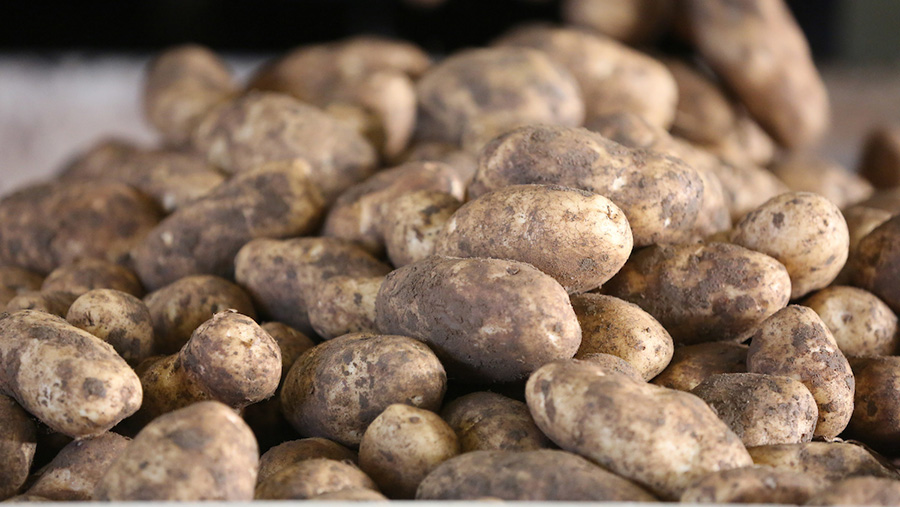Potato sprout suppressant limits cut again this autumn

The maximum limit for a key sprout suppressant has been further reduced for the coming spud storage season, farmers are being warned.
This reduction is part of the gradual annual reduction in CIPC (chlorpropham) rates in order to prevent further cases of it being found in fresh and processed potatoes, thus securing its future use.
CIPC is a vital tool for the potato industry in preventing sprouting, as there are no real alternatives available.
See also: Maleic hydrazide could bolster potato sprout control toolbox
But residues were being found in potatoes and back in 2007, The Advisory Committee on Pesticides raised concerns over CIPC.
This prompted the industry to establish a stewardship scheme and one of the measures in recent years has been the reduction in maximum limits.
“Maximum doses have already been decreasing under the Be CIPC Compliant campaign since 2012 from the maximum of 63g/t,” said Mike Storey, AHDB Potatoes head of research and development.
New maximum limit
The ultimate aim is to bring the maximum dose down to 36g/t. For the 2016-17 season, the new statutory total doses for CIPC are:
- Fresh market: 24g/t of potatoes
- At store temperature of 5C or less, only a single application, up to 16g/t, should be made, before the temperature is reduced below 7C
- Processing market: 42g/t of potatoes
This is down from last year’s limit of 30g/t for fresh potatoes and 50g/t for processing potatoes.
Adrian Briddon of Sutton Bridge Crop Storage Research, hopes that these changes will prevent any further exceedances, the last one being back in February 2014.
For growers concerned that the lower levels will fail to control sprouting, AHDB point to trials showing these lower levels still give good control.
“The new rates have been proven to be effective, so long as it’s evenly distributed and applied at the right time,” says Mr Briddon.
Air recirculation
Another change on the horizon is the requirement from next year that any store requiring a CIPC application must have an appropriate fan system installed to facilitate the active recirculation of air within the store.”
He urges producers to plan ahead and have stores ready for this change.
“Investing in the equipment sooner rather than later will not only save you time next year, it will also reduce the volume of chemical required, therefore paying for itself within a year or two.”
For more information on CIPC best practice, visit the Be CIPC Compliant website

